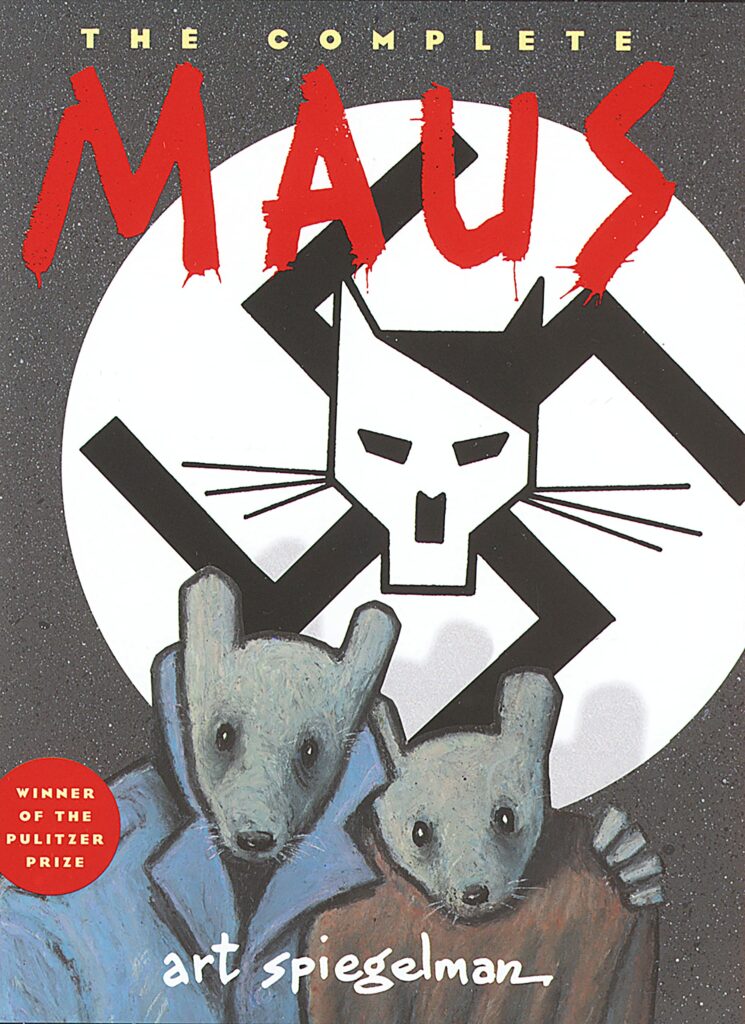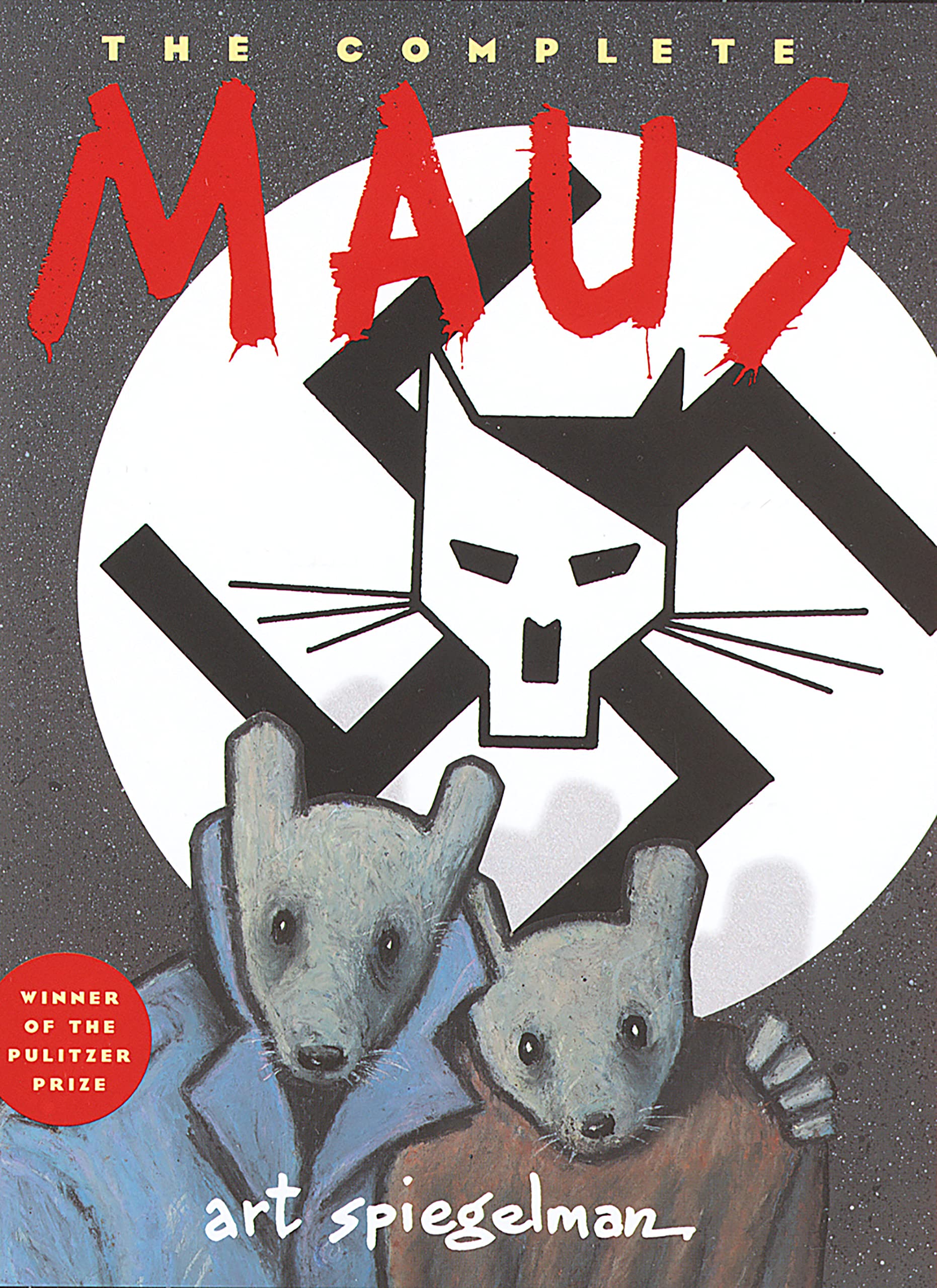What content is appropriate for kids
The book “Maus” is a graphic novel published in 1980 and was written and illustrated by Art Spiegelman. The book is inspired by his parents’ experience in concentration camps and his mother’s suicide. In this novel, Nazis are depicted as cats and Jewish people as mice or rats.

A Tennessee school board voted on Monday, Jan. 10, to unanimously ban the book citing the nudity of a female, language and the violent content of the book.
There are many quotes from board members, but the one that sticks out the most is this quote from Mike Cochran, “If I was trying to indoctrinate somebody’s kids, this is how I would do it. You put this stuff just enough on the edges, so the parents don’t catch it, but the kids, they soak it in. I think we need to relook at the entire curriculum.”
When I was in ninth grade, we read several books about the Holocaust and race at my private Christian school. We read “Night” by Elise Weisel, “The Hiding Place” by Corrie Ten Boom and we also read “To Kill a Mockingbird” by Harper Lee.
Never have I attended an institution more Republican in values in my entire life, and yet, the school recognized the importance of talking honestly about the history and the Holocaust.
We were exposed to this content because we needed to understand the atrocities committed honestly. These books and subject matter teach the value of human life, the importance of critical thinking and the role of citizens to question government policies.
As an adult, I know the truth of the Holocaust because of these first-hand accounts in the books I have read; humans need to see what they can do to avoid repeating the future.
The thought of this Tennessee school board completely redoing their curriculum to remove conversations about the Holocaust and exerting more control over how teachers teach the subject matter is deeply concerning.
After reading many direct quotes from their decision to remove the book from the curriculum, I have determined that, truly, the use of language and the depiction of sex was deemed inappropriate for eighth graders.
However, I’m afraid I have to disagree with that decision. Determining what content is appropriate for children can be a difficult task. In practice, I think kids are exposed to far worse content from their peers and the internet than frankly anything in the graphic novel.
Introducing this content in the classroom is likely the best place to do it. In a controlled environment, the seriousness of a topic can be explained in depth to children. They can ask questions and foster their critical thinking skills to form their thoughts and opinions.
While I encourage people to think biblically and live for Christ, it’s a simple fact that not everyone is a Christian. I don’t think using the Lord’s name in vain is a good enough reason to ban a book from being taught in a public school.
Especially since some Holocaust survivors are still alive, it is recent history. Curse words in books are easily fixed. When my class read “To Kill a Mockingbird”, the solution was simple: don’t read the N-word. No one did, and the class could still fully comprehend the material.
Even with the “nudity” it was a single panel that was not in any way, shape or form sexual. It was in the scene containing the suicide. The book does cover complex and challenging topics, I won’t deny it, but both subject material needs to be covered.
According to Americanhealthranking.org, “Youth suicidal ideation, attempt and completion are on the rise. Far more adolescents have suicidal thoughts or attempt suicide and survive than those who die by suicide.”
Suicide and mental health is a topic that needs to be addressed among the youth. It is not an issue that is going away. What are school districts doing to help address these issues? What kind of message does it send to young kids when books are banned for reasons like this?
Furthermore, banning books rarely accomplishes what is intended. I am a pretty big fan of freedom of speech. I absolutely love my job as an opinion editor, but I wouldn’t be successful if I didn’t have the freedom.
I talk about politics all the time in this paper, and so do my coworkers; the freedom to cover topics as we see fit is crucial not only to our work but our country.
Banning books only makes them more popular. Before the Tennesse school board banned it, it was not even on Amazon’s top 1000 books. Now it’s on the bestseller list. As I write this, it’s No. 4 and is currently out of stock.
All this to say, telling people, especially children, that something is off-limits makes kids want it more — ask any parent. Instead of having open discussions with kids about why they don’t recommend teaching from this book, they banned it.
In a statement, the school board said, “We do not diminish the value of ‘Maus’ as an impactful and meaningful piece of literature, nor do we dispute the importance of teaching our children the historical and moral lessons and realities of the Holocaust.”
The board goes on to say, “We have asked our administrators to find other works that accomplish the same educational goals in a more age-appropriate fashion.”
Okay, Tennessee, let’s review some of our options. How about “Night” by Elise Weisel? His book discusses some of the atrocities he experienced in detail. I suspect, having read “Night”, that “Maus” is much tamer in comparison.
There is no sugar-coated way to tell these stories because their gruesome nature is where their impact lies.
What about the “Diary of a Young Girl” written by Anne Frank. You may have heard of her. Her diary is unfinished because she is found and dies in the end. She doesn’t even get to live and tell her own story.
Another book about the Holocaust, “Sophie’s Choice”, is about a woman who survives but ends up in an abusive relationship. I could go on an on and on.
It should go without saying that these books detail an ugly point in human history. The Nazis did a great deal of horrible things. There is no sugar-coated way to tell these stories because their gruesome nature is where their impact lies.
Being a Human Development and Family Sciences major, I know a thing or two about life span development. Young people around these ages are already experiencing peer pressure. They are being exposed to drugs, alcohol, sex and smoking. They are also being introduced to being able to put words to mental health struggles and are forming relationships with food.
They are beginning to think critically about themselves and others. According to Piaget’s stages of development, this age group is in the formal operational stage. This means that kids this age can think abstractly and logically; form and test hypotheses and start to think about social, political and philosophical issues.
Essentially, this is the perfect age to have tough and honest conversations with kids. They are at an age where they can understand that the world is not wholly good. They are starting to be exposed to negative experiences that they can cognitively understand and process.
The argument that kids at this age can’t handle this conversation doesn’t line up with what I know about kids or the developmental theories around what kids understand.
We shouldn’t wait on subject matter like this for kids to teach themselves. Kids should discover the word “damn” in a classroom and learn appropriately, instead of learning it on the playground and using it in class inappropriately.
Book banning doesn’t help anyone; they don’t benefit the educators, the students or parents. If you aren’t fond of what your kids are learning about in school, then that’s an opportunity to have a conversation with your child about the values and morals of your family and why you believe them.
The bottom line is that the Holocaust needs to be covered in schools. I hope that the McMinn Country Board of Education gets their priorities in order regarding what is relevant for students’ education.
